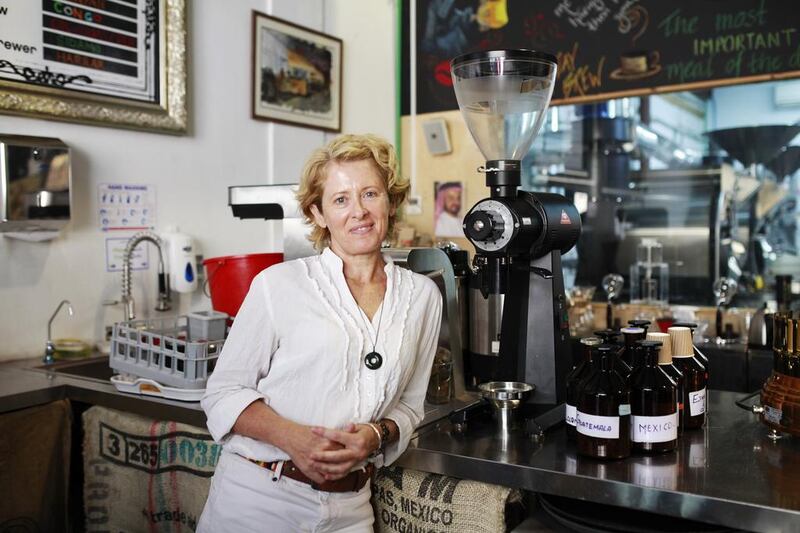Just 10 years ago, almost all of the coffee in the UAE was imported from abroad. These days, caffeine lovers can purchase fresh coffee made from the finest beans, imported from around the world but roasted locally.
As coffee comes from the seed of a fruit, the taste varies depending on a variety of growing conditions, including soil quality, rainfall, sunshine, altitude and agriculture practices. Roasting also makes a huge difference to taste and quality, and is used to enhance desired flavours. While imported coffee can be flavoursome, roasting beans locally enables baristas to play with different notes to create unique artisanal blends, and control freshness and quality.
“Roasting imparts huge variables on the coffee characteristics, the same way that you could compare cooking a beautiful Wagyu steak correctly, using the correct heat, the correct type of pan and accurate timing,” says Kim Thompson, the managing director of RAW Coffee Company. This boutique roastery, located in Al Quoz, supplies to cafes, restaurants, businesses and homes in Dubai and Abu Dhabi.
“There is a science to roasting, which includes air flow, drum speed and temperature at various stages of the roasting process, that all dramatically affect the taste of your cup of coffee.”
Coffee roasting is a complex art. In fact, it is a chemical science. “Matter is neither created nor destroyed, it just changes form”, says Antony Papandreaou, head of coffee at The Sum of Us (the second of three Dubai offerings from Tom & Serg owners Tom Arnel and Sergio Lopez), quoting the first law of thermodynamics.
This is pretty much exactly what roasting coffee does. It changes the form of compounds and naturally occurring acids and sugars in the green coffee bean. The longer the beans are exposed to heat, the more chlorogenic acids are breaking down into quinic acids, which will increase the bitter astringent flavours. The darker it is roasted, the more soluble the coffee becomes, which impacts the body and mouth-feel of the coffee.”
With so such scientific methodology comes a lot of variables. Before, during and after the roasting process there are many rules that need to be followed to ensure a perfect brew.
While the local coffee industry may be lagging behind the likes of the United Kingdom (by approximately five years, according to Thompson), as local knowledge grows, it is catching up.
“The current boom we are seeing is one that is essential in developing all of the UAE’s coffee-drinking community by raising the minimum standards of coffee quality and service,” says Ryan Godinho, co-founder of Speciality Batch in Dubai’s Grosvenor Business Tower.
“As new cafes and roasters pop up around the UAE, it allows consumers to become more aware. More awareness means more people can discover and appreciate choice and quality, and hopefully this, in turn, would lead to a more critical approach when deciding on how and where they get their daily coffee.”
artslife@thenational.ae






